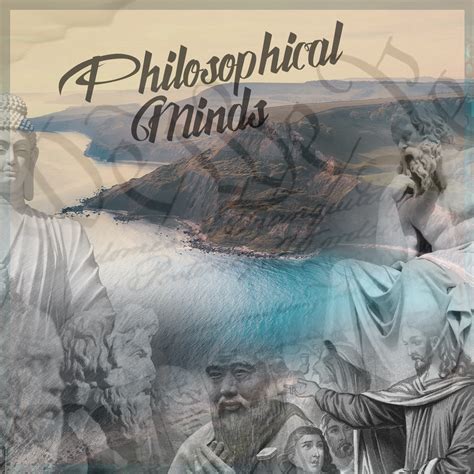Are you passionate about delving into the depths of the human experience and seeking to understand the world through the lenses of philosophy and literature? If so, you’re in for a treat! In this blog post, we’ll be exploring the fascinating connection between philosophy and literature and the diverse programs offered in American universities. From an overview of these programs and the importance of studying them, to the evolution of philosophy and literature programs and the influential figures studied within them, we’ll cover it all. Additionally, we’ll delve into the interdisciplinary approach found in these programs, how they foster critical thinking, and the exciting career prospects they offer. Moreover, we’ll compare philosophy and literature programs in different universities and highlight the scholarships and funding opportunities available for aspiring students. So, if you’re ready to embark on a journey of intellectual discovery, stay tuned for a comprehensive guide to philosophy and literature programs in American universities.
Table of Contents
Exploring the connection between philosophy and literature
Philosophy and literature have been intertwined throughout history, each influencing and shaping the other in profound ways. The study of philosophy and literature delves into the exploration of human existence, consciousness, and the human condition, as well as the expression of these ideas through the written word. It is a fascinating journey that allows individuals to connect with the deepest aspects of human thought and expression.
The connection between philosophy and literature can be seen in the works of renowned philosophers and writers such as Socrates, Plato, Aristotle, Shakespeare, Nietzsche, and Camus, among others. Their writings often delve into existential themes, moral dilemmas, and the complexities of human nature, blurring the lines between philosophy and literature.
Studying the relationship between philosophy and literature allows individuals to develop critical thinking skills, analytical reasoning, and a deeper understanding of the human experience. It encourages interdisciplinary exploration, as students analyze philosophical concepts through literary works and vice versa, gaining a comprehensive understanding of both disciplines.
Furthermore, the connection between philosophy and literature extends to the influence they have on one another. Literature often serves as a medium through which philosophical ideas are conveyed to a wider audience, while philosophy provides the foundation for the thought-provoking themes and concepts found in literary works.
Philosophy and literature programs: An overview
Philosophy and literature programs offer a unique combination of two distinct disciplines, providing students with a comprehensive understanding of the human experience. These programs delve into the deep connections between philosophical thought and literary expression, allowing students to explore the complex intersection of language, ideas, and cultural context.
Students in philosophy and literature programs are exposed to a wide range of philosophical concepts and literary works, spanning various time periods and cultural backgrounds. From ancient Greek philosophy to contemporary literature, these programs provide a broad overview of the rich tradition and evolving nature of both fields.
One of the key aspects of philosophy and literature programs is their interdisciplinary approach, encouraging students to critically analyze texts, engage in philosophical debates, and draw connections between different forms of artistic expression. This holistic approach cultivates well-rounded thinkers who can navigate complex ideas and articulate their insights effectively.
Graduates of philosophy and literature programs have a diverse set of career opportunities, including roles in academia, publishing, public relations, and the arts. Their multidisciplinary background equips them with valuable skills in critical thinking, research, and communication, making them well-suited for a variety of professional paths.
The importance of studying philosophy and literature
Studying philosophy and literature is crucial for developing a well-rounded and critical mind. It allows individuals to explore the complexities of human existence, morality, and the nature of reality through different lenses.
By studying philosophy, students are exposed to various schools of thought, from ancient to contemporary, which helps them analyze and understand the world in a more profound way. Literature, on the other hand, provides insight into different cultures, societies, and historical periods, fostering empathy and understanding of diverse perspectives.
The interdisciplinary nature of philosophy and literature programs encourages students to think critically, analyze complex texts, and express themselves effectively through writing and verbal communication. This skill set is invaluable in any field or career path, as it cultivates creativity, analytical thinking, and the ability to articulate complex ideas.
Furthermore, studying philosophy and literature encourages individuals to question assumptions, challenge conventions, and engage in meaningful discussions about societal issues. It fosters the development of ethical and moral reasoning, which is essential for creating a more just and compassionate society.
The evolution of philosophy and literature programs
Philosophy and literature programs have come a long way since their inception, evolving to encompass a wide range of interdisciplinary studies and critical thinking. These programs have grown from traditional curriculum focused on classic philosophers and literary works to include a more diverse and modern approach to the subject matter.
As education and society have evolved, so too have philosophy and literature programs. The curriculum now includes a broader range of philosophical ideologies and literary movements, reflecting the changing landscape of intellectual thought and creative expression.
In addition, technology has played a significant role in shaping the evolution of these programs. With the digital age providing new platforms for literary and philosophical discourse, students now have access to a wider array of literary and philosophical works, as well as the opportunity to engage in online discussions and debates.
Overall, the evolution of philosophy and literature programs has led to a more comprehensive and inclusive approach to the study of these disciplines, providing students with a richer and more dynamic educational experience.
Prominent philosophers and writers studied in these programs
When studying philosophy and literature programs, students often encounter the works of Plato, the ancient Greek philosopher who wrote extensively on topics such as ethics, politics, and metaphysics. His dialogues and treatises have had a profound impact on both fields, making him a central figure in these programs.
Another significant philosopher studied in these programs is Friedrich Nietzsche, known for his critiques of traditional morality and his exploration of the concept of the will to power. His influence on literature, particularly existentialist and postmodern writers, has made him a key figure to study in the context of philosophy and literature.
On the literary side, writers such as Virginia Woolf and Franz Kafka are often studied in conjunction with philosophical themes. Woolf’s stream-of-consciousness style and exploration of subjective experience align closely with existentialist and feminist philosophical thought, while Kafka’s writing delves into the absurd and the alienation of the individual, topics relevant to existentialist and absurdist philosophy.
Lastly, the works of Albert Camus, the French philosopher and writer, are widely considered in philosophy and literature programs. His existentialist novels and essays examine the human condition, the absurdity of existence, and the search for meaning, making him a significant figure in the interdisciplinary study of philosophy and literature.
Interdisciplinary approach in philosophy and literature programs
When it comes to studying philosophy and literature, it’s important to understand the interdisciplinary approach that these programs often take. Interdisciplinary approaches in these programs allow students to explore the connections between philosophy and literature in a more comprehensive manner.
By taking an interdisciplinary approach, students are able to gain a deeper understanding of how philosophical concepts can be applied to literary works and vice versa. This approach also encourages students to think critically and analytically, analyzing texts through both a philosophical and literary lens.
Furthermore, an interdisciplinary approach in philosophy and literature programs opens up opportunities for students to engage in cross-disciplinary collaboration with their peers and professors. This allows for a more holistic learning experience, as students are exposed to a variety of perspectives and insights.
Overall, the interdisciplinary approach in philosophy and literature programs offers a unique and enriching educational experience, preparing students to tackle real-world challenges with a well-rounded skill set.
How philosophy and literature influence critical thinking
Philosophy and literature play a crucial role in shaping our critical thinking skills. By delving into the timeless works of philosophers and writers, we are able to analyze, interpret, and evaluate complex ideas and concepts. This in turn, enhances our ability to think critically and make informed judgments.
Studying philosophy exposes us to different schools of thought and trains us to question assumptions, critically examine arguments, and develop logical reasoning. This helps us approach problems with a more analytical mindset, considering multiple perspectives and possibilities.
Literature, on the other hand, provides us with a rich tapestry of human experiences, emotions, and dilemmas. Through the exploration of various literary works, we learn to empathize with diverse characters, discern underlying themes, and deconstruct narratives. This enables us to think critically about societal issues, cultural norms, and personal values.
Together, philosophy and literature encourage us to engage in meaningful discussions, challenge prevailing beliefs, and think critically about the world around us. They cultivate our capacity for introspection and equip us with the tools to navigate complexities with clarity and insight.
Career prospects for graduates of philosophy and literature programs
Graduates of philosophy and literature programs have a wide range of career prospects available to them. With a strong foundation in critical thinking, analytical skills, and the ability to communicate complex ideas effectively, these graduates are well-suited for careers in fields such as education, writing, publishing, law, and business.
One common career path for graduates of philosophy and literature programs is teaching. Many go on to become English or literature teachers at the high school or college level, where they can share their passion for philosophy and literature with students and inspire the next generation of thinkers and writers.
Another popular choice for graduates is to pursue a career in writing or publishing. With their strong understanding of language, storytelling, and critical analysis, these individuals are well-equipped to work as writers, editors, or literary agents, shaping and promoting the work of other writers.
Furthermore, the analytical and critical thinking skills developed through studying philosophy and literature can also lead graduates to careers in law, where they can apply their abilities to problem-solving, argumentation, and writing. Additionally, their deep understanding of human nature and ethics can make them well-suited for roles in the field of ethical consulting or working for non-profit organizations.
Comparing philosophy and literature programs in different universities
When it comes to choosing the right university for your philosophy and literature program, there are several factors to consider. Each university offers a unique curriculum, faculty, and resources, so it’s important to compare the programs to find the best fit for your academic and career goals.
One of the key aspects to compare is the curriculum of each program. Some universities may focus more on the philosophical aspects of literature, while others may have a stronger emphasis on literary theory and analysis. It’s important to look at the course offerings and requirements to see which program aligns most closely with your interests and goals.
In addition to the curriculum, it’s also important to consider the faculty and resources available at each university. Look into the research areas and publications of the faculty members in the philosophy and literature programs to see if there are any professors whose work aligns with your interests. Furthermore, consider the library resources, writing center support, and study abroad opportunities offered by each university
Finally, it’s important to consider the career prospects and alumni networks of each program. Some universities may have stronger connections to specific industries or offer more internship and job placement opportunities for graduates. Researching the career paths of alumni from each program can give you valuable insight into the potential outcomes of completing the program. By comparing these factors across different universities, you can make an informed decision about which philosophy and literature program is the best fit for you.
Scholarships and funding opportunities for aspiring students
For students aspiring to pursue a degree in philosophy and literature, there are numerous scholarships and funding opportunities available to support their academic journey. These scholarships not only provide financial assistance but also recognize the potential of students who are passionate about the interdisciplinary study of philosophy and literature.
One of the prominent scholarships available for aspiring students is the Philosophy and Literature Scholarship, which is offered by various universities and organizations. This scholarship aims to support students who demonstrate outstanding academic achievement, leadership qualities, and a strong commitment to the field of philosophy and literature.
In addition to scholarships, there are also funding opportunities such as research grants, fellowship programs, and study abroad stipends specifically designed for students pursuing studies in philosophy and literature. These opportunities enable students to engage in scholarly research, attend conferences, and gain international exposure, thereby expanding their academic horizons.
Furthermore, aspiring students can explore funding options through academic departments, professional organizations, and foundations dedicated to promoting the study of philosophy and literature. These resources not only alleviate the financial burden of pursuing higher education but also foster a supportive community for students passionate about the intersection of philosophy and literature.






